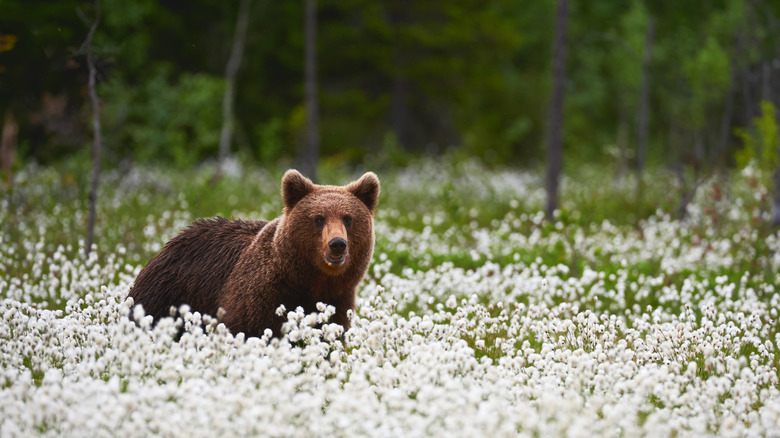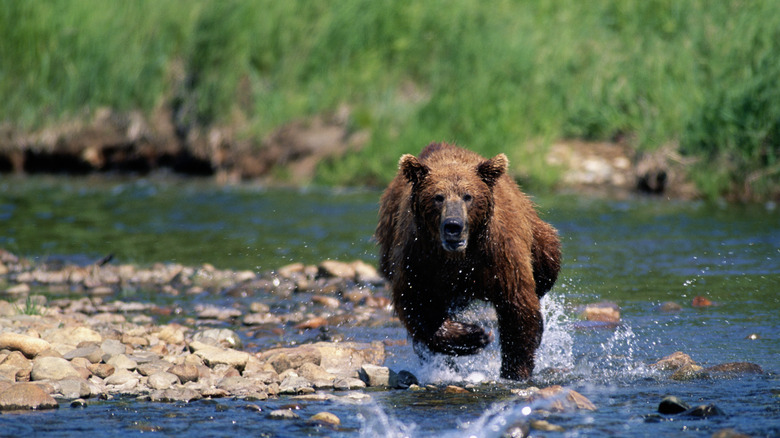The Common Smell That Could Mean A Bear Is Near And Other Signs To Look Out For
When hiking in bear country, your nose might alert you to dangers before your eyes do. If you catch the scent of something resembling a smelly, wet dog, it could mean a bear has been in the area recently. Bears carry a musky odor that intensifies when they're active or damp, and catching this smell on the trail is often a strong indicator of their presence. Unlike other wildlife, bears are large enough to leave a distinct aroma that lingers, especially if they've been foraging nearby.
But smell isn't the only clue. A key warning sign is the presence of a scavenged carcass, which bears will guard fiercely while feeding. These opportunistic feeders rely heavily on protein-rich meals, especially during the fall when they are building fat reserves for hibernation. If you encounter a carcass on the trail, it's crucial to avoid it completely, as the bear may still be nearby, protecting its food.
Another indicator of bear activity is damage to trees. You might notice claw marks, stripped bark, or even tufts of fur clinging to rough surfaces. Bears will often rub or scratch against trees as a means to mark their territory or even as a way to communicate with other bears. These burly animals also leave other subtle signs, like overturned logs or rock piles, as they search for insects and roots to eat. If you're hiking in an area known to have bears, it's wise to stay alert with all of your senses, especially considering that bear attacks have been on the rise.
How to stay safe if a bear is nearby
Recognizing the signs of a bear's presence is just the first step. If you find yourself face-to-face with a bear, staying calm and understanding its behavior are critical. Begin by standing your ground and avoiding sudden movements. Speaking to the bear in a calm, firm tone can help it identify you as human and not prey. Most importantly, never run — this can trigger a bear's chase instinct.
Bears are curious and will often approach to size up the situation. If the bear doesn't seem aggressive, give it time and space to leave on its own. However, certain behaviors, such as huffing, jaw popping, or bluff charging, indicate that the bear feels threatened. In these situations, make yourself appear larger by raising your arms or a backpack over your head while maintaining your calm demeanor.
Carrying bear spray is one of the most effective ways to stay safe in bear country. It creates a cloud that irritates a bear's eyes and respiratory system, deterring it without causing permanent harm. Familiarize yourself with how to use bear spray before heading out, as quick action can make all the difference. In the fall, bears enter a phase called hyperphagia, where they become relentless eating machines, consuming thousands of calories a day to prepare for hibernation. This means they may be more active and less likely to move away if disturbed. If you're hiking in bear country during this season, make extra noise to announce your presence, and travel in groups whenever possible.

